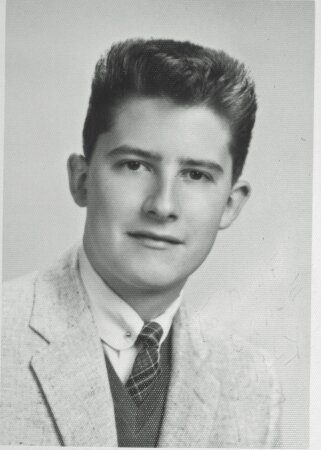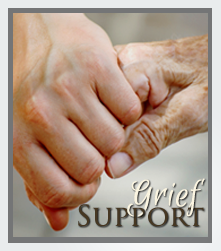973-762-2200 (The Jacob A. Holle Funeral Home) | 973-762-1133 (Preston Funeral Home)
jacobhollefh@aol.com
prestonfh@aol.com







Obituary of William Henry Lorentz
William H. Lorentz (“Bill”), 84, of Maplewood, died at home on Friday, August 2, after an extended illness. Preceded in death by his parents, William and Mary Agnes (Mae) Lorentz; his brother-in-law, Richard Clayton Selfridge; and his nephew, Scott Clayton Selfridge; and survived by his sister, Lois Ann Selfridge; his husband of 52 years, Michael Francaviglia; and his beloved Golden Retriever, Cody. He was raised in the Dodd town section of East Orange before moving to Newark in 1967, and then to Maplewood in 1975.
The following narrative was written by Bill and posted on Classmates. It was intended for his fellow students at Clifford J. Scott High School, and serves nicely as his obituary – it’s classic Bill with observations filled with humor, irony and clear-sightedness.
“Given the length of this story and the possibility that it is an exercise in TMI, my sense of humor will survive should anyone find it a tad pretentious -- which it may well be! And for which, please accept my apologies. I learned to read and to write and can't seem to stop either even in my "golden years.
I retired after 23 years as a New Jersey Deputy Attorney General (hereafter "DAG") specializing in civil rights and environmental prosecution and appeals. At retirement in 2002, I was the Senior Prosecuting DAG for the NJ Division on Civil Rights. Throughout most of my years at Scott (which, unfortunately, no longer exists -- just the building) and periodically through Rutgers University undergrad and then Rutgers Law School, I worked for Camera Craft Stores, at 14 1/2 a stock boy, then as a salesperson.
It was a great opportunity for a kid who loved both photography and just being around and using the latest equipment. Getting a job (part-time during the school year and full-time in the summer) at such a young age, while it limited my ability to be as active in extra-curricular activities as I would have liked, was a considerable "life changer" for a basically shy kid whose grades thus improved significantly and pocketbook was enhanced so I could buy a car at 17. It also supplemented later scholarships and helped develop a personality which was more outgoing, articulate, people oriented, perhaps contentious, outspoken and persuasive. It also led to my resolving to be more active in campus activities in college than I had been in high school and thus forced me to be more self-disciplined in using my time more carefully in order to fit everything in, a trait which has served me well for the rest of my life, i.e., the "busy person" syndrome.
Hence, at Rutgers undergrad I was President of the Student Council, founding President of a chapter of Tau Kappa Epsilon Fraternity, made Phi Beta Kappa and also found my way into Who's Who in American Colleges and Universities. At law school, I was Vice President of the Student Bar Association and then National Vice President of the American Law Student Association (the junior ABA) while paying the bills by doing professional photography whenever I had the time. Thank goodness for weddings, bar mitzvahs and people who spend enormous sums on them!
I was admitted to the bar in 1965 and spent six years with a major law firm (as a student law clerk and then a trial attorney) defending insurance companies' treasuries from plaintiffs' negligence claims. It was great experience but became increasingly at variance with my politics and religious values.
Then the 1967 Newark riots convinced me to "do something" to provide the legal advocacy I came to regard as a possible remedy for the violent expression of the frustration of the disenfranchised living in Newark. Over lunch, the senior partner in my then law firm opined that "those people should learn something about law and order." This only provoked my developing argumentative nature and I wound up in a contentious and spirited discussion where I tried to convince a very traditional, rich, establishment, white, Irish Catholic trial lawyer that respect for the law depends in large part on whether one can afford to hire trained advocates to insure a fair hearing and sound court decisions. It may or may not have convinced him, but I certainly persuaded myself.
So, I quit the firm where I had spent so much energy hiding who I was, joined a cause in which I could believe and served for 10 years as a Senior/Managing Attorney for Essex County Legal Services. In addition to representing the poor and the disenfranchised in the common areas and variety of problems which plague them, we often took cases which had the potential to change the law where change seemed only another but necessary step toward justice.
Four cases which especially excited my "rescue fantasies" (something which drives many a professional's life -- or should) included: (1) convincing the NJ Supreme Court to abrogate the common law doctrine of "independent covenants" which held that when a landlord failed or refused to provide essential services like heat, hot water or a working toilet, the tenant still had to pay the full rent and could be evicted even if he/she had been forced to spend all or part of it to cure the problem the landlord had failed to remedy and in order to make the rental premises habitable; (2) establishing a right to counsel as a matter of due process for parents in cases where the state sought to terminate parental rights for any reason; (3) successfully representing a group of "hippies" by having a local loitering ordinance declared unconstitutional, the court holding that merely "hanging around" cannot constitutionally be made the subject of a criminal prosecution; and (4) convincing a federal court to rule that New Jersey welfare recipients could not arbitrarily be terminated from the rolls but must, as a matter of due process, be first given a fair hearing at which the welfare authorities carried the burden of proving termination was required by governing regulations.
After being sworn in as a DAG in 1979, I first was assigned to represent the newly created Pinelands Commission under Governor Byrne's executive order and later statute designed to preserve and protect some one million acres which sat atop the last pure aquifer in the state. Since it curtailed a significant number and density of building, the statute and its enforcement scheme were constitutionally attacked by a group of builders. We won in the first appeal I handled for the State.
In 1988, I requested and was granted a transfer to civil rights enforcement because I wanted the chance to enforce the State's construction of the disability section of the Law Against Discrimination (LAD) which protected people with AIDS or perceived as at risk, in large part because five of my friends had died of the disease. I have spent some 25 years as an activist in the Lesbian and Gay (LGBT) Rights movement, and in 1984 I was pleased to author the "affectional or sexual orientation" amendment to the New Jersey LAD.
Introduced in 1984 and in every legislative session thereafter, it eventually was passed by the Legislature on Jan. 13 and signed into law on Jan. 19, 1992 by a then outgoing Governor Florio who kept a campaign promise. In a most ironic confluence of circumstances, I was then assigned as lead counsel to defend the new law against a legal attack targeting the State, the Division on Civil Rights and the Governor by the Orthodox Presbyterian Church and its right-wing legal think tank. They claimed the new law interfered with their First Amendment right to freely exercise their religion. In fact, it only affected the non-existent right to have their religiously based prejudices reflected in secular law.
After five years of litigation and multiple appeals, the last going all the way to the U. S. Supreme Court, we succeeded. Aside from personally gaining expertise in First Amendment litigation and providing the most fun a lawyer gets to have while being paid for it (especially with my partner attending the last of three appellate oral arguments before the imposing federal Third Circuit Court of Appeals), our efforts helped move LGBT people closer to true legal equality, a quantum leap when one considers that in 1976 male same-sex relations were -- albeit seldom enforced -- felony crimes carrying a ten-year jail term!
Of course, women were not covered by the law. As one probably apocryphal story goes, they had not been made criminals under the English common law because Queen Victoria "could not imagine just what two women could do together." However, after the entire New Jersey criminal code was revised in 1977 and eliminated all consensual, adult sexual conduct as criminal offenses, "someone" noticed that "all" really meant "all."
Ironically, there followed a brief attempt by the Roman Catholic Church to recriminalize just same-sex relations which, in some convoluted exercise in gender equality, would have included women for the first time. That it did not include fornication, adultery or, for that matter, sodomy between heterosexuals somehow was lost on the "good fathers of the Church" and made them look silly and plainly bigoted even as they claimed they were protecting marriage (by criminalizing gay sex but not adultery or fornication?).
As then President of Dignity, a gay Catholic group, I recall a particularly hilarious meeting with the Executive Director of the New Jersey Catholic Conference who explained to me that the Church had instigated the proposed law because it had been "caught with its pants down," surely a most unfortunate usage considering the source and the subject matter. Hence, it deservedly died after the state senator who was doing the bidding of the Church withdrew the bill following a campaign by a budding gay rights movement which convinced him gay and lesbian people were "as good citizens as any" and did not deserve to be made criminals for just being who they were. That was the energizing for New Jersey's gay rights struggle and my own lifetime involvement in it.
In retirement, I have started a solo law practice as a "country lawyer" AND a photo studio (my first choice of a profession). I enjoy a home in Maplewood, one or two golden retrievers, a farm in PA with my partner of 45 years [eventually 52 years], and working for my Church (Episcopal) where I have served two terms on the Vestry (governing body), and where my now legal husband (Michael Francaviglia) served until his retirement in 2013 as Diocesan Administrator, with a third fully progressive Bishop. Retirement interests include politics, art, music, gardening, an aquarium, model trains, gay rights, reading, blogging, Broadway plays and shows, photography, history, theology, Scripture and a never-ending interest in the law. Travel has led us to: Israel, England, Greece, Egypt, Denmark, Sweden, Norway, Canada, Costa Rica, Mexico, Puerto Rico, Spain, Portugal, France, Germany, Austria, Columbia, Venezuela, Finland, the Netherlands and the numerous out of the way American cities where Michael has run in some 12 marathons. Has anyone else ever spent a weekend in Fargo, N.D.?
With enlighten rulings from both the U. S. Supreme and the courts of New Jersey, we were legally married by our parish priest on February 26, 2017 -- pretty radical by some standards but still an old-fashioned notion! You might ask what two nice former Catholic school boys are doing in places like this. Answer: Change happens with growth. And in case you haven't guessed by now we are a gay couple. Neither of us could remain in a church which, illogically, branded us as "intrinsically disordered" from birth and, at the same time, recognized our sexual orientation was not a matter of choice. Nonsense theology is just that: it makes no sense, especially for serious followers and thinkers with multiple advanced degrees. Any more out there? Anyone else walk the halls of high school in a "closet" even if you didn't fully then realize? When "gay" was a term not yet even coined? When a particularly effeminate upper-class student I vividly recall was hatefully subjected to teasing, catcalls and homophobic insults every day as classes changed? (I do remember his name, and I do wonder to this day how he fared in life and earnestly hope he eventually overcame the cruel bullying he suffered at the hands of the mostly "nice" kids.) As a student of Scripture, law, religion, politics (especially when they intersect), history and psychology, I read extensively on many sides of issues as an exercise in lifelong education and am more than equipped to discuss any and all and at least understand -- if not agree with -- varying points of view. I only wish more people had the courage, or just the intellectual curiosity, to make contact and renew old friendships. Polite and cordial discussion of even differing opinions is an art form if practiced without rancor or personal insult. That much I believe and follow. Anyone of the same opinion?"
The family extends gratitude for Bill’s compassionate care by Clunide Sylvane of Homeside Hospice, Emmanuel Nnonyelu of Synergy Home Care, and the entire staff of South Mountain Rehabilitation.
In lieu of flowers, please consider a donation to the Southern Poverty Law Center or the American Civil Liberties of New Jersey Foundation.
Memorial Service


973-762-2200 (Jacob A. Holle Funeral Home)
973-762-1133 (Preston Funeral Home)
jacobhhollefh@aol.com
prestonfh@aol.com
2122 Millburn Ave | Maplewood, NJ | 07040
153 South Orange Ave. | South Orange NJ | 07079

